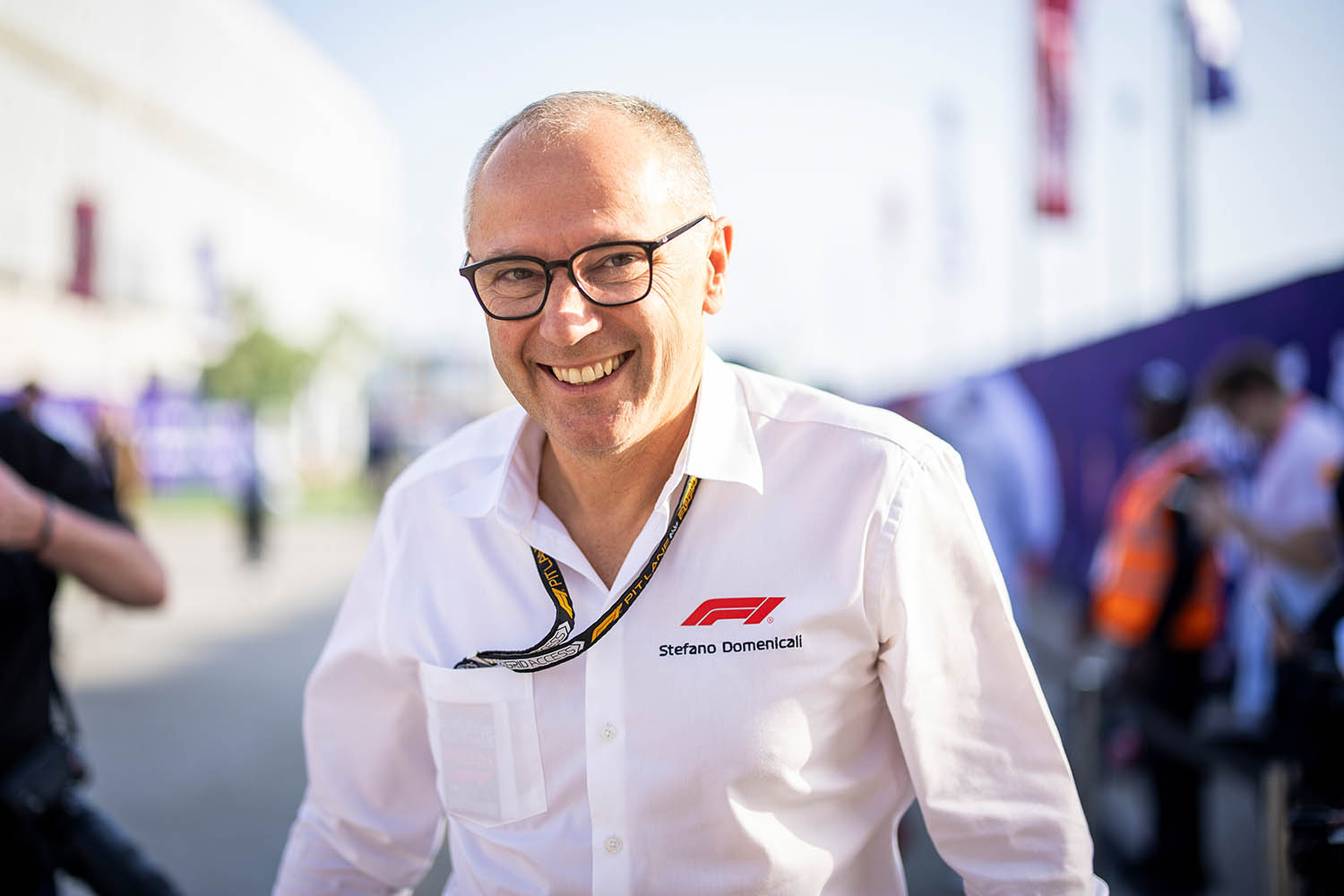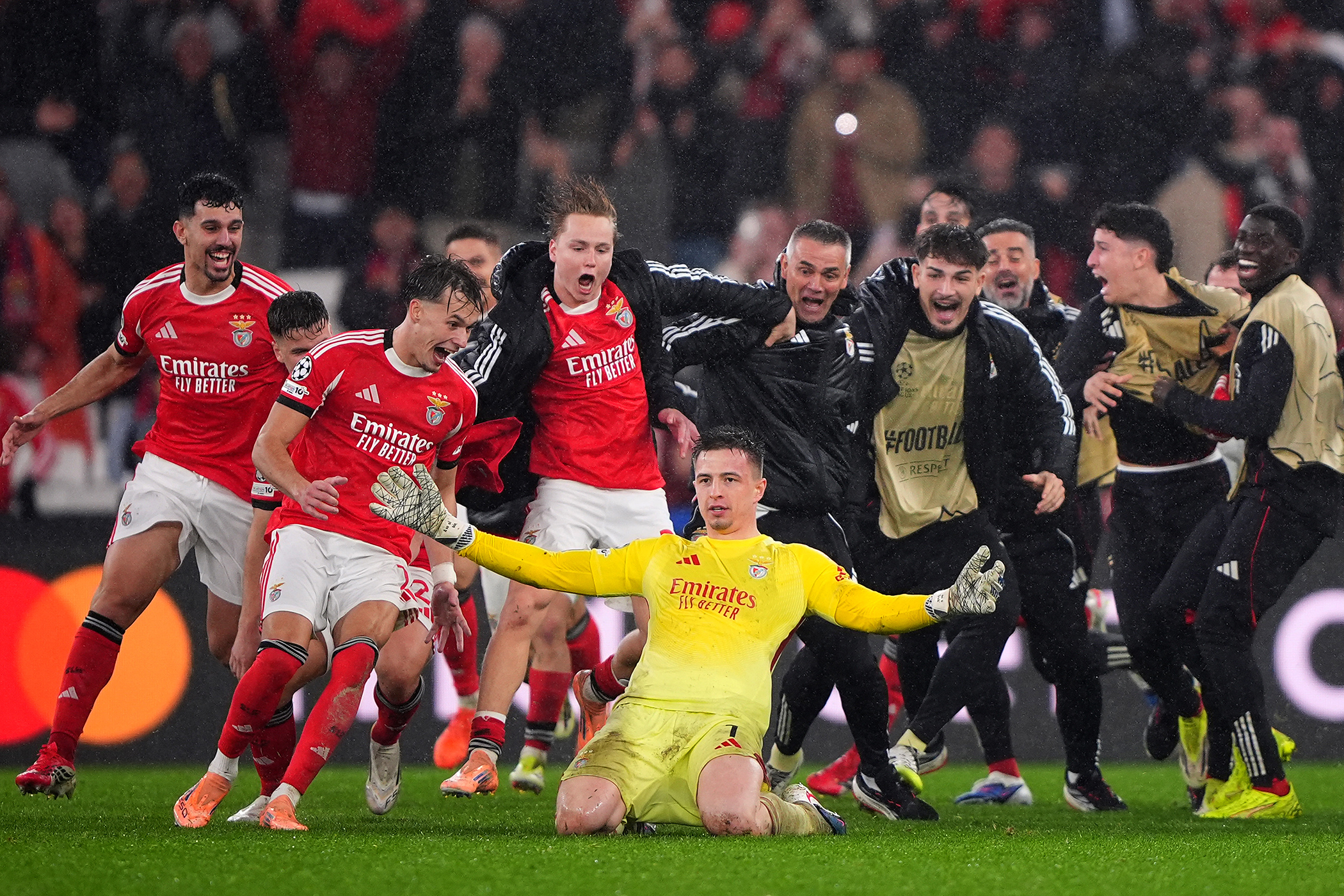Stefano Domenicali makes an apt boss for Formula One with the speed at which he operates. “Not 170mph, more like 270mph,” he jokes from his office at the sport’s London headquarters, acutely aware of his own approach to work.
The 60-year-old Italian is talking from a golden racing chair in his office, complete with his surname and the No 1 on it, to a backdrop of a wall-length picture of the 20 current drivers. In his hand, he holds a red rubber ball on which he takes out some of his boundless energy mid-conversation.
An early riser and still youthful, he is perpetually on the go and has an infectious personality which makes it hard not to buy into what he’s saying.
Under his watch, the sport has flourished. The Netflix series Drive to Survive had already begun before his tenure as president and chief executive started in 2021 but it has gone from strength to strength since, and is credited with helping the sport’s long-term but previously unfulfilled goal of breaking into America.
With regards to the US, he says: “We are just scratching the surface,” despite the country grossing nearly a third of the $600m the Brad Pitt movie took at the box office globally.
Domenicali and the sport are proud of their list of statistics. According to their latest research, F1 has a global fanbase of 827 million (a 12% rise on last year), an audience of which 43% are 35 or younger, and edging ever closer to gender parity, with 42% of their fanbase female. Then there are a record 24 races on the calendar and sponsors lining up to partner with them, including Moët Hennessy Louis Vuitton to the tune of a reported $1bn for 10 years from the start of this season.
And yet the relentless rise for the sport must surely dip, or at least plateau, before too long? The sport’s Italian boss doesn’t agree. “I don’t see yet that moment coming close because there are so many areas that we have not explored,” he says. “We believe there is a lot of room to progress. We need to raise the bar again.”
So how does he follow the success of Drive to Survive and the F1 movie? “For us, the new dimension is to stay focused on the younger generation,” he said. That equates to tie-ins with Lego and Disney, with other projects to follow similar to the Apple movie but ones he is keeping close to his chest beyond the shareholders.
Related articles:
With youth the target, is there not a danger that F1 alienates its traditionalists in the process? Earlier this month, Domenicali caused a stir with comments suggesting he was after shorter grands prix, which led to criticism from drivers and fans.
But he says: “I never said we need to cut the distance of the race. What I’m saying is that the span of attention of the people today is very short, so we need to be attractive. We need to understand if the format of racing is the right one or not. It could be longer or shorter. Every idea has to be considered.” The message is more an overarching one of not being afraid of change.
Newsletters
Choose the newsletters you want to receive
View more
For information about how The Observer protects your data, read our Privacy Policy
Now 60, Domenicali’s F1 journey began in 1991 when he joined Ferrari where he climbed up to team principal 17 years later. Despite working for the most famous brand in F1 and subsequently Audi and Lamborghini, it is a quirk of his position that he doesn’t drive and doesn’t own a car.
But his passion for racing still burns bright and he is equally at ease working with drivers, team bosses, promoters and heads of state. With the latter he hopes F1 can be a conduit for positive change.
“We are the only worldwide sport that every year is around the globe where we meet with prime ministers, with kings, with everyone, with the top men in the world,” he said. “So my hope is that through F1 we can also talk about the bigger picture of the world in a way that the sport can unify the world that we’re living in.”
It remains to be seen whether he will need to use his diplomacy skills when it comes to the Qatar Grand Prix in two months. The Lusail circuit is only a few kilometres away from where an Israeli strike targeted senior Hamas leaders in Doha earlier this week.
“That is very tragic, very difficult,” he says. “We are monitoring the situation very closely but we are not in a situation today where we can say that it is a concern [for the race to go ahead]. We hope that sport will bring positivity.”
Nearer to home, he has enjoyed closer relations with the British government, having visited No10 Downing Street back in July to stress the importance of the motorsport industry to the UK economy but also to highlight the issues of Brexit.
He talks of limitations and complications from leaving the EU but insists it does not impact Formula One as a business keeping its home in London. “That’s the base, the headquarters,” he says, “unless someone kicks us out!”
The biggest change on track is fast approaching with an overhaul of regulations next season, a move to 100% sustainable fuels as well as cars powered by a 50-50 split between the internal combustion engine and electrical power.
Some have warned drivers could be left needing to lift off the accelerator and coast on the straights to save power. The prospect of slower race cars allied with the complexities of the rule changes have a danger of alienating the new breed of fans F1 is targeting.
“Explaining this is the right way will be complex in the beginning but I have a positive attitude that when there is change, there is also great opportunity,” he said.
Other sports have tried to emulate F1 with Drive to Survive and for the most part come up short. Its appeal is a combination of the on-track action and the characters off it, some of whom Domenicali jokingly suggest the programme has turned into “monsters”.
He is wary of him or his staff resting on their laurels measuring up to other sports. “Believe me, they will catch up but we don’t just compete against sports events, we compete against an ecosystem of an entertainment world that is bigger.”
For F1, though, in his eyes still the only way is up.
Photo credit: Hoch Zwei/AP Images



